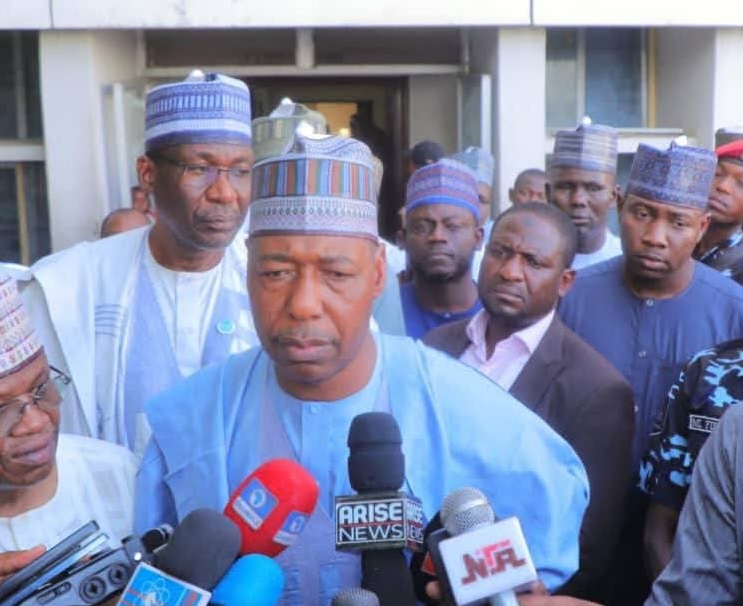As the Nigerian military intensifies its operations in the northeast, reports of renewed Boko Haram offensives have sparked fresh concerns about the group’s lingering threat, despite years of government-led counterinsurgency efforts.
In recent weeks, multiple attacks in parts of Borno State—especially in Marte, Rann, and Gajiram—have shaken local communities and exposed the persistent danger posed by the insurgents.
The incidents have included ambushes on security convoys, raids on rural communities, and coordinated hit-and-run strikes.
These developments come even as the Nigerian Army sustains its air and ground offensives into the infamous Sambisa Forest, long believed to be the strategic hideout and operational hub for Boko Haram factions.
Coordinated attacks spark renewed fears
in Marte, located near the Lake Chad region as insurgents launched a brazen assault on a military convoy earlier this month.
The ambush reportedly caused significant casualties and left military assets damaged.
Around the same time, in Rann, insurgents raided the town, looting homes and forcing residents to flee. The town’s proximity to the Cameroon border and previous displacement history made it most vulnerable.
Gajiram, in Nganzai Local Government Area, also came under fire as insurgents attacked military formations, leading to a prolonged exchange of gunfire.
Residents reported hearing sustained explosions, further fueling panic among the population.
These attacks have sparked concerns that Boko Haram remains capable of regrouping in Sambisa and launching well-coordinated strikes despite ongoing military pressure.
The Nigerian military has responded with a renewed offensive in Sambisa Forest, deploying ground troops and launching airstrikes on insurgent hideouts.
The campaign is part of efforts to root out remaining terrorist elements and prevent the regrouping of fighters flushed out of liberated towns.
However, military experts warn that the current approach may not yield lasting results.
Retired Nigerian Army officer, Captain Abdullahi Adamu Bakoji has raised concerns about the sustainability of the strategy.
Speaking to DAILY POST in Kano, Capt. Bakoji commended the military’s courage but warned that temporary offensives, where troops kill a number of insurgents and then retreat to base, allow surviving fighters to regroup and reclaim lost ground.
“The current offensive of attacking Sambisa forest, killing a few hundreds of Boko Haram fighters while the rest run away, and the boots return to camp—this will give them room to return to the forest,” he warned.
Bakoji also explained that Boko Haram fighters have developed tactical responses to evade attacks, including hiding in dugouts to escape aerial bombardment.
He called for the military to be equipped with more sophisticated weaponry and advanced intelligence-gathering tools.
Bakoji emphasized the importance of a permanent security presence in Sambisa and other vulnerable zones.
He urged the Federal Government to establish multiple military bases in the region to prevent a resurgence.
“The government must, after the victory, create as many military bases as possible to prevent Boko Haram and related elements from taking refuge in the forest,” he said.
Security analysts have echoed concerns that while the military has made notable gains—liberating towns, rescuing captives, and dismantling cells—the insurgency has proven difficult to be fully eliminated due to Boko Haram’s ability to exploit ungoverned spaces and adapt to evolving military tactics.











